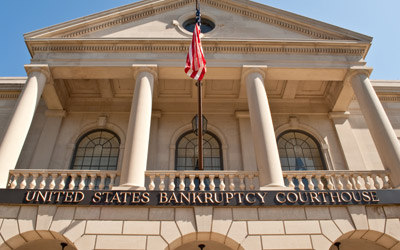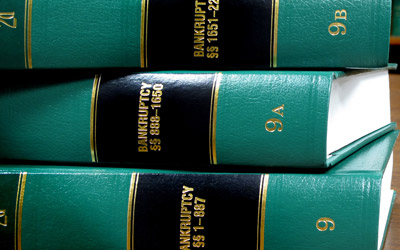Bankruptcy Articles
A. Child Support and Bankruptcy
Child support, alimony, family support, spousal support, spousal maintenance, or any other type of family support, whatever it is called, are all considered to be non-dischargeable debts in a bankruptcy. More specifically, child support and alimony cannot be wiped out in bankruptcy. Children are a wonderful part of life. However, the rates of child support is viciously high in New Jersey. In my opinion the child support laws in New Jersey are oppressive and unfair. It is very common for fathers to simply leave the state of New Jersey because they can’t keep up with their high child support payments.
Bankruptcy can sometimes be helpful in scenarios wherein child support are in arrears, and a garnishment is about to effectuated to collect it. In some cases a bankruptcy court can provide a debtor with an opportunity contest the amount of the child support arrears. The Probation Department often makes many mistakes when they calculate the actual amount of child support that a debtor may owe. A bankruptcy court can address accounting issues on child support and alimony arrears. However, a bankruptcy court will not rule on legal issues that have already been decided by a family law court. Moreover, under no circumstances will a bankruptcy court will never modify or lower an existing child support or alimony award. In summary, if you are displeased with a decision made by a family court judge, then you can’t just file for a bankruptcy and then request that the bankruptcy judge lower your child support or alimony payment. No can do!
Unfortunately, a debtor also can’t wipe out child support or alimony payments and arrears in a bankruptcy. However, it is very possible to discharge your other debts that you owe to your other creditors. Thus, once your bankruptcy is discharged, then this will free up your disposable income, and then you will be able to pay down any of your child support arrears.
B. Chapter 7 and Child Support
When you file for a chapter 7 under the bankruptcy code, it will most likely have no effect on any support claims, lawsuits, garnishments, judgments, or other collection actions that involve family support issues. Even though the automatic stay immediately stops all legal actions to collect debts it does not apply to the collection of child support or alimony.
In a chapter 7 the property of the bankruptcy estate includes all money, property, possessions, and interests you own at the time of filing your case. If any monies are earned post-petition, or after the bankruptcy case is filed, they they are not considered to be property of the estate. If a debtor owes any current child support or alimony then these debts and legal obligations are not affected by filing for a chapter 7. Therefore, if you file for a chapter 7 then it will have little if any impact on your child support and alimony payments.
C. Chapter 13 and Child Support
In a chapter 13 case child support claims even have a higher priority than taxes do. Just like with taxes, child support obligations in a chapter 13 are considered “priority” claims. These type of claims also must be paid in full over the length of the chapter 13 plan. Therefore, in a chapter 13 the repayment of past due child support must be fully paid before your unsecured creditors receive a dime.
For many debtors who are behind on child support, a chapter 13 repayment plan can also provide a method to repay any past child support arrears. If you owe any back child support then by filing for a chapter 13 you can still regain control of your financial life. You can repay his past due child support arrears over a 3 to 5 year period. Thus, you might be able to avoid a garnishment of his paycheck for past due alimony or child support by filing for a chapter 13. The automatic stay will protect you from creditors who are trying to seize your property to collect child support arrears. A chapter 13 repayment plan can allow you to become current based on a payment schedule. In a chapter 13 you won’t be able to discharge the child support debt just as you can credit card debt and medical bills. Moreover, it you elect file for a chapter 13 then you must keep current with all of your child support payments after you file. If you fail to keep current with your child support payments then your bankruptcy case might be dismissed. At the meeting of the creditors all debtors must fill out a form and advise whether they owe any back child support. If a you blow off this legal obligation to pay child support then the court may deny you a discharge.
D. Child Support and the Automatic Stay
The filing of a bankruptcy stops any and all collection efforts against a debtor. However, the automatic stay does not stop certain types of legal actions that try to collect alimony and child support. Child support and alimony are not subject to the powerful automatic stay provisions. Therefore, the automatic stay doesn’t apply to legal actions to establish a child support order, modify a child support order, or to collect child support. Any garnishments that deduct child support from your paycheck will not be affected by your filing for bankruptcy. However, a wage garnishment that collect upon past due child support could be stayed in chapter 7 and definitely stayed in a chapter 13.
E. The Non-Dischargeability of Property Settlement Agreement (PSA) Debts
A previously stated, any debts or financial obligations that arise from a divorce or from a property settlement agreement (PSA) that relate to the payment child support, alimony, or attorney’s fees are not dischargeable in a bankruptcy. However, if a debt derived from a divorce case is in the nature of a property settlement obligation, then in some narrow circumstances it may be possible to discharge it. Generally, all property settlement obligations are presumed to be non-dischargeable. However, in very rare cases a debtor might be able to overcome the presumption of non-dischargeability, and he might possibly be able to have this debt(s) discharged. The standard to discharge a PSA debt is extremely difficult. A debtor must prove that he can’t possibly pay the debt and still take care of himself, his dependents, or his business. The debtor must also prove that by discharging the debt(s) this would result in a significant benefit to him. Moreover, the debtor must prove that the benefits would outweigh any the harm caused to a former spouse or child by the non-payment of the debt. See, 11 U.S.C. 523(a)(15).






